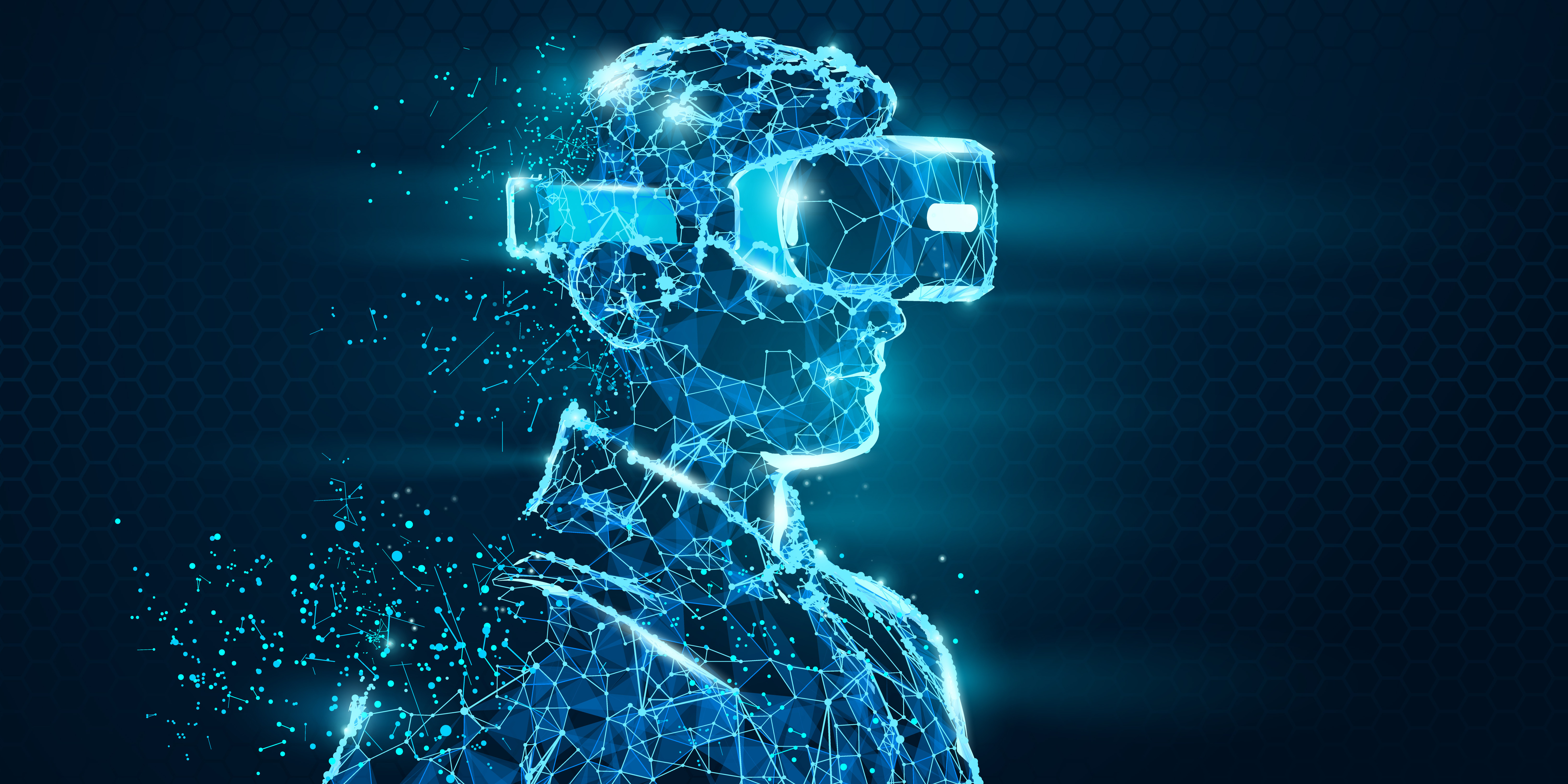Welcome to the Metaverse - Part 1

What is the Metaverse? Is it the new Marvel movie that is going to be released in May? No wait, that’s the Multiverse. The name Multiverse is not that different from Facebook’s (Meta’s) Metaverse, as the Multiverse consists of multiple universes. Meta is creating a whole new reality and experience for us, its users. Meta has created a “universe” if you will, for us to live, engage, and work in. And the more time we spend there, the less time we are experiencing the real world.
How does it work?
The metaverse is a virtual world, that can be accessed with virtual reality headsets, augmented reality glasses, your phone, and other accessories. People can interact with one another through their customized avatars, which refers to the character they create and become, in this computerized environment. A person can be whoever they want to be in the Metaverse, the physical identity in the real world seldom matches the avatar. The possibilities are endless - big, small, strong, fast, slow, pink, brown, or even a mix of all colors. On the other hand, the Metaverse imitates the real world in many ways; you can buy land, attend events (like meetings or concerts), own pets, make friends, and more. You can even construct your own home, architect others’ homes/mansions/worlds, and share these different 3D environments. The Metaverse has a nascent digital economy where people can create, buy, exchange, and sell a multitude of goods, land, currencies, and ultimately create different virtual experiences. The fact that people can visit different cyber-locations like a retail store, or that the Metaverse will become a part of our workplaces in the future, is almost certain. Will participants in the Metaverse begin to offer services next?
The possibilities are only limited by your/our imaginations...
This virtual universe has already become a “real thing” to many people and companies. Meta is far from being alone in the pursuit of “handing” (or is it “handling”) us the Metaverse. Companies like Apple, Amazon, Google, Microsoft, Nvidia, Epic, Unity, Roblox, and Snap are only some of the names helping build the Metaverse or their visions of a Metaverse, and every day more companies are joining. Even musicians like Justin Bieber and Ariana Grande are leveraging the Metaverse to expand their audiences and using their own avatars. They are performing in concerts that we can all attend (and pay for), no matter where we are. If concerts are not your thing, there are carnivals, bars, museums, and so much more to see. The possibilities are only limited by your/our imaginations.
The Future is Metaverse?
Given the global pandemic, the Metaverse allows people to experience their lives in a virtual and safe way. For example, Paris Hilton had a New Year’s Eve party in the Metaverse where many users were able to attend and have fun in a safe environment. Other celebrities have partaken in this virtual world, like Snoop Dogg, who has not only built himself a virtual mansion in The Sandbox (one of many popular Metaverse worlds), but has also begun to sell his virtual land. This is all very exciting, new, and transformational to the way we consume entertainment, travel, and interact with one another. However, what does this mean for the future? Investors are either paying millions of dollars for real estate in the Metaverse or investing millions in companies in the space. Similarly, individuals are willing to pay large amounts of money to be virtual neighbors of celebrities. Cyber Yachts, the world’s first Metaverse yacht company developed by Bitcoin Latinum and Monsoon Blockchain Corporation, have partnered with several rappers to create an NFT collection of 888 yachts for people to buy. The Metaverse is opening us up to a world of unknowns. Despite the growing popularity of the Metaverse, it is paramount to be aware of the potential risks involved.
Privacy in the Metaverse
As with anything in our digital society, personal data and privacy is (or should be) at the core. The metaverse’s success will heavily depend on data collection due to its core infrastructure – VR headsets and augmented reality software. Kavya Pearlman, founder of the XR Safety Initiative, has said that “at any given time, the way you move, the way your gait is, the way you’re gazing, your pupil dilation, is giving away information to developers". Project Cambria, a project that involves a new VR device that can mirror your face and eye movements, could cause a plethora of challenges if successful. With the data collected, Meta can give advertisers info on where people’s eyes are focused to measure our attention. As a result, this data will be used to better target people with ads and influence buying decisions. This brings into question new privacy challenges that need to be addressed with data laws and regulations. It should be clearly stated who has access to our data, what data can be collected/shared, and what our data can be used for. We are already entitled to this information and protection in the real world, and now, the same must happen in the virtual world. Many large companies have violated individuals’ privacy in the past few years, so as a society, creating data protection policies is of high importance. Other issues with the Metaverse involve fake identities, harassment and bullying, which we have seen before at various instances (e.g. Facebook (Meta)). Meta has bought BigBox VR Inc., the developer for Population One, a game in which people have said their avatars have been assaulted. Due to the fact that these incidents occurred and are occurring in virtual reality, some individuals that were part of these incidents assert that it felt like they were assaulted in real life. These incidents are very difficult to catch as they happen in real time without being recorded. Is an assault in the virtual world a crime? Who has jurisdiction? In video games, or any virtual platform, harassment and bullying are a common occurrence, but who is responsible for monitoring, policing and preventing these from happening? Should these events be reported to the authorities?
The companies that are creating these experiences, worlds, universes need to address these growing problems to ensure the safety of the growing number of people joining and experiencing the Metaverse. The link between the real world and the virtual one will need to be established so enforcement is easier and more accurate. We will need verified identities, real and virtual ones, that can be used to ensure precise identification in case of breaches. Identity Verification software would be a simple solution. If a user is more than an anonymous avatar, but a verified human being, could this make them feel more culpable and less inclined to cyberbully/harass in VR? These are the questions we will be diving into in the Metaverse Series, Part 2… In the meantime, some additional food for thought:
Is the Metaverse really paving a new path for our future? Will our digital selves become as important or more important than our physical selves? Is the Metaverse the future? Will you (whomever “you” are) join the Metaverse?
Curious to know more about the Metaverse and Digital Identity? Get in touch.


